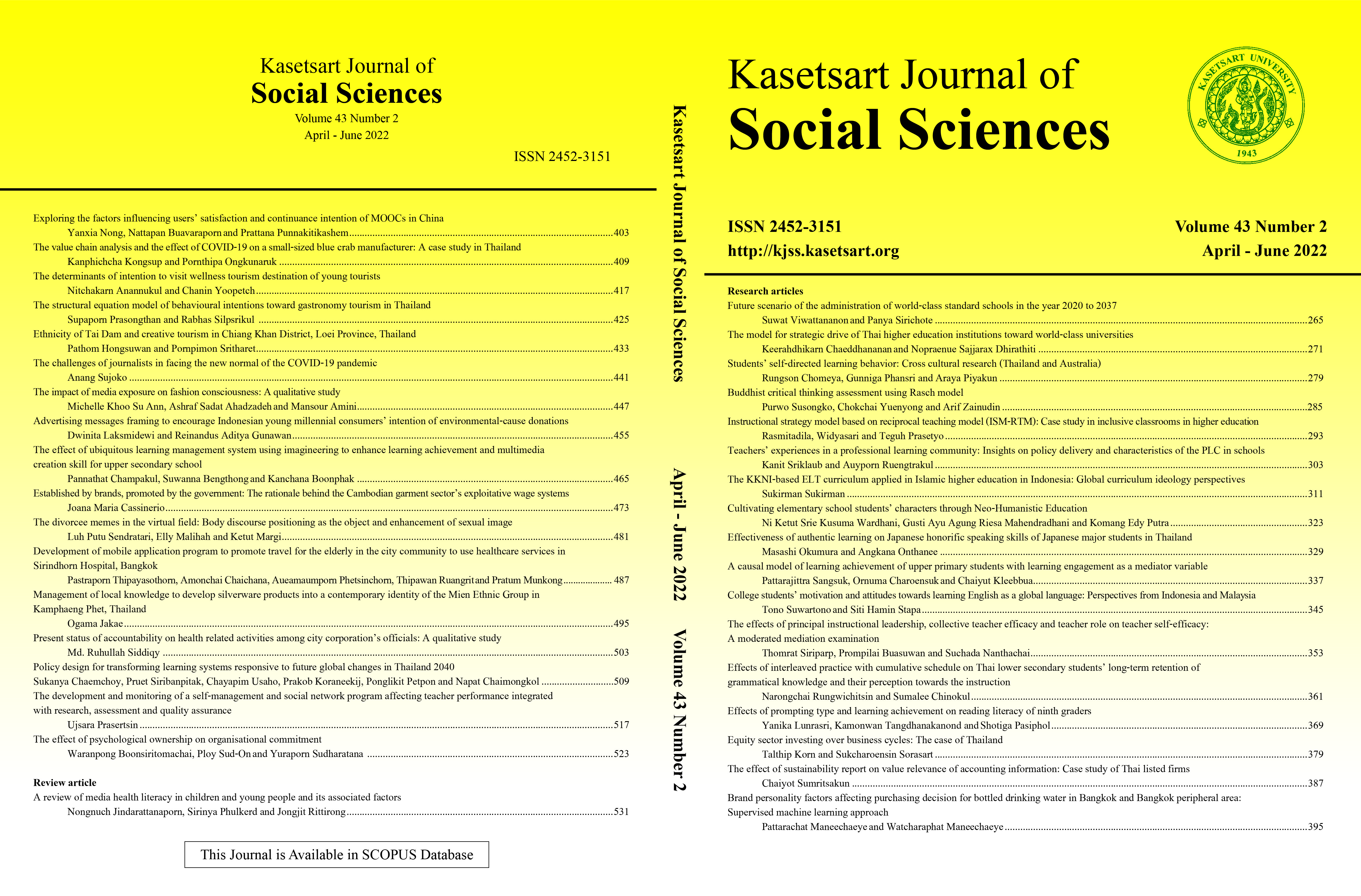The determinants of intention to visit wellness tourism destination of young tourists
Keywords:
EWOM, health consciousness, intention, perceived benefits, perceived expertise, perceived riskAbstract
Young tourists are considered the fast-growing and highly important group of tourists in today’s tourism business. This paper examined the factors influencing the intention of the young generation to travel for outbound wellness tourism. Research design was the quantitative method with structural equation modeling. A total of 425 respondents completed a questionnaire survey developed from past literature. The results showed that perceived expertise, health consciousness, and perceived benefit had a positive effect on the intention to visit while perceived risk showed a negative effect. In addition, the study found that health consciousness and Electronic word-of-mouth (EWOM) had a positive effect on perceived benefits. As crucial roles of health consciousness, perceived expertise and perceived benefits to influence the wellness tourists, the wellness tourism service providers should apply marketing strategies via social media and other channels to ensure the awareness and the adoption of wellness tourism activities. Directions for future research included the expansion of the scope of wellness tourism and exploration of a variety of wellness tourism activities, and additionally, comparison among various generations of tourists can be further investigated.
Downloads
Published
How to Cite
Issue
Section
License

This work is licensed under a Creative Commons Attribution-NonCommercial-NoDerivatives 4.0 International License.
This is an open access article under the CC BY-NC-ND license http://creativecommons.org/licenses/by-nc-nd/4.0/










